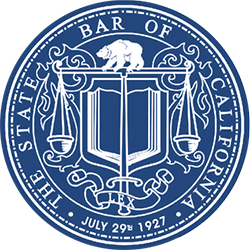Proper Treatment of Residential Treatment
Residential treatment facilities often serve as an integral part in the recovery process for those suffering from addiction and mental illness. However, since many states categorize these facilities as non-medical in nature, they are often handicapped when it comes to the provision of medical services directly to recovery patients after they have been discharged from acute medical recovery treatment programs.
The Corporate Practice of Medicine
The problem stems from the Corporate Practice of Medicine doctrine (“CPOM”). Broadly, CPOM requires that licensed health professionals only work as sole proprietors, employees of similarly licensed professionals, or through professional limited liability companies or professional corporations. Many residential treatment facilities are owned by persons or entities that lack medical licensure, making it legally impossible for them to directly employ or contract with physicians.
CPOM in Nevada
In Nevada, CPOM has been the subject of several Attorney General Opinions (each, an “AGO”). Specifically, Opinion 219 of the Official Opinions of the Attorney General – 1977 concludes that physicians are strictly prohibited from employment by other business entities or unlicensed people:
The practice of medicine by a general corporation organized under Chapter 78 of Nevada Revised Statues [“NRS”] is illegal. Nevada licensed physicians who aid or abet a corporation to illegally practice medicine may be charged with unprofessional conduct and have their licenses suspended or revoked.
While CPOM has not been codified via statute or regulation, the AGO cited above is an express indication of how the Attorney General’s office perceives CPOM and its position in Nevada law. Any non-licensed entity employing or contracting directly with a physician or other licensed medical professional runs the risk of catching the attention of the Attorney General’s office.
Fortunately, other states have taken the lead in addressing this issue. Their remedial efforts in reconciling CPOM with the non-medical classification of residential treatment programs offer a blueprint with which we might move forward here in Nevada.
CPOM and Residential Treatment Facilities
The justifications for CPOM center on three public policy concerns: (1) the possibility of lay control over the physician’s judgment; (2) the division of the physician’s loyalties between his patient and his employer; and (3) the commercialization of the medical profession.
Nevada specifically categorizes residential recovery facilities as non-medical in nature. NRS 449.00455 defines facilities “for the treatment of abuse of alcohol or drugs” as “any public or private establishments which provide residential treatment, including mental and physical restoration, of abusers of alcohol or drugs.” That non-medical classification represents the largest roadblock to directly contracting a licensed physician to perform medical services.
Like Nevada, California categorizes residential addiction treatment programs as “non-medical.” Until 2015, California had a significant issue reconciling their codified version of CPOM, which placed a prohibition of direct employment of medical professionals by non-medical residential recovery facilities, and the need for those same facilities to provide a continuity of care. Specifically, California law dictated that residential drug treatment centers had no authority to assess or treat patients’ needs. Rather, they were at most permitted to encourage patients to seek the care of independent licensed physicians. Those physicians were then required to contract directly with the patients and not through the residential treatment program.
In 2015, California state legislature addressed the issue via Assembly Bill 848 (“AB 848”). AB 848 authorized non-medical addiction treatment programs to contract with physicians in order to provide “incidental medical services” to patients. Those incidental medical services, as spelled out in Health and Safety Code 11834.026, address a host of medical issues associated with both alcohol and drug detoxification and provision of alcoholism, drug abuse recovery, and recovery treatment services such as monitoring vitals and assessing the potential need for transfer to urgent or emergency care facilities. While residential treatment facilities are still prohibited from providing general primary care, AB 848 has significantly improved the quality of care for recovery patients in California.
The Future of Residential Treatment in Nevada
While California spells out as much as possible in black letter, Nevada leaves its laws relatively ambiguous. However, both states do observe the principals of the Corporate Practice of Medicine, and as evidence by the AGO cited above, Nevada has historically leaned toward its enforcement.
However, if Nevada used AB 848 as a blueprint, it could easily implement a legal, codified path for doctors to provide a comfortable continuity of care for recovery patients after they are discharged from acute medical recovery treatment and pass into non-medical long-term residential recovery programs. Not only would this address a longstanding gap in the recovery industry, it would offer a very limited zone for the legitimate and legal engagement of physicians and medical professionals by non-licensed entities who are invested in the health and well-being of recovery patients.







